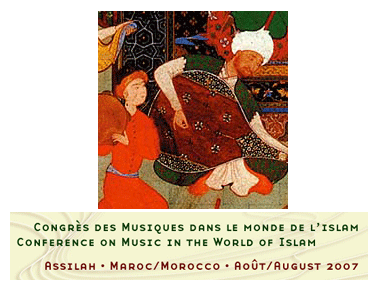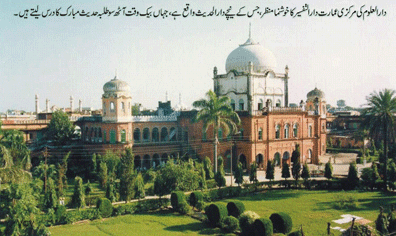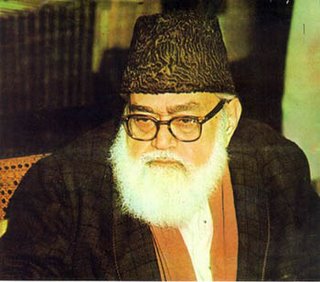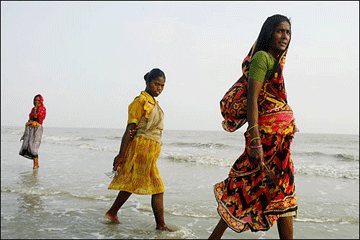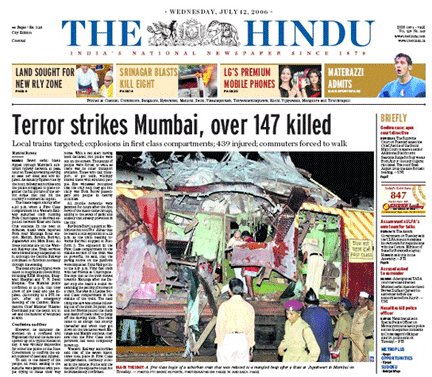
Enough is Enough
Says who to whom?
By Badri Raina, ZNet, November 30, 2008
Epigraph:
The Light of the body is the eye: if therefore thine eye be single, thy whole body shall be full of light.(Gospel, Matthew, 6:22)
I
My skimpy acquaintance with the Taj hotel in what was then Bombay goes back to 1962.
I had been selected as a rookie sales executive by the then world’s largest corporate house, Standard Oil, whose Asia division was called ESSO.
Our offices, also then the only air-conditioned building in Bombay, was at Nariman point.
Such was the nature of my job that on two or three occasions I had to be inside the Taj, full of smiles and business.
Some three years later I decided I wasn’t going to sell oil for the next forty years, and I quit cold turkey to return happily to an academic life, liberally enlivened with activist involvements.
In short, the Taj hotel is truly a magnificent structure, although those days it made me happier to look at its magnificence from the outside than wheeling-dealing inside.
Like every other Indian, therefore, I am deeply saddened both by the insane loss of life, notable and ordinary, and by the damage done to this edifice. Especially when I recall that the Taj was the result of a laudable anti-colonial impulse, since Jamshedji had been refused entrance to another hotel reserved exclusively for the British. Continue reading Enough is Enough


